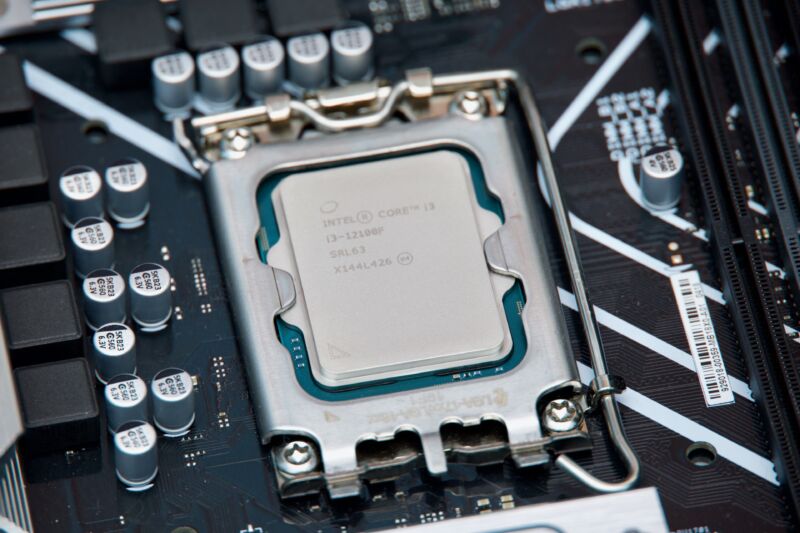Intel's next-generation desktop CPUs haven't been released or even announced yet. Codenamed "Raptor Lake" and likely to be branded as 13th-generation Core chips, rumors suggest we'll see them sometime in September or October, but Intel hasn't officially said anything yet.
That isn't stopping motherboard makers from updating their existing motherboards to support the new chips, though. In the last month, Asus, ASRock, MSI, and (most recently) Gigabyte have all either released BIOS updates supporting the next-gen CPUs in their current-gen Z690, H670, B660, and H610-series motherboards or announced plans to do it soon.
This does two things for PC builders. For those who have already built PCs based on 12th-generation Alder Lake CPUs, it means a guaranteed upgrade path to 13th-gen CPUs for people who want or need to run the newest, fastest chips. More importantly, it means that people can skip new Z790 motherboards and opt for cheaper, sometimes clearance-priced 600-series motherboards if they want to build a brand-new system when Raptor Lake CPUs come out.
Once Raptor Lake chips are officially released, these initial BIOS updates will likely be followed by others that add more features, fix bugs, and improve performance. Asus, for its part, says that the initial BIOS update "is for power-on purposes only and is not suitable for performance testing."
Intel's chipsets and motherboards support two generations of CPUs apiece before being replaced, often coinciding with a physical change to the CPU socket. But this isn't always the case; motherboards based on the budget-focused H410 and B460 chipsets couldn't generally be upgraded to work with 11th-generation desktop CPUs, even though the sockets were physically compatible and the higher-end H470 and Z470 chipsets could support both 10th- and 11th-gen chips. Motherboard makers are releasing BIOS updates for all their 600-series boards and not just the expensive ones, so this segmentation problem shouldn't exist this time.
Intel's Raptor Lake architecture is expected to be a relatively minor refresh to Alder Lake, and technical documentation suggests that both the E-cores and P-cores in Raptor Lake chips use the same architecture as their Alder Lake counterparts. This doesn't mean that Raptor Lake won't be faster—there are many things you can do to boost a chip's speed beyond updating its architecture, including increasing the core counts and clock speeds. Intel used these methods to improve the performance of its Skylake architecture for years.
Intel also won't be the only processor maker releasing upgrades this fall. AMD's Ryzen 7000 series and Zen 4 architecture will be here before the end of the year, and rumors suggest that Apple is also planning to release new M2 Pro and M2 Max processors in the same time frame.



3175x175(CURRENT).thumb.jpg.b05acc060982b36f5891ba728e6d953c.jpg)
Recommended Comments
There are no comments to display.
Join the conversation
You can post now and register later. If you have an account, sign in now to post with your account.
Note: Your post will require moderator approval before it will be visible.